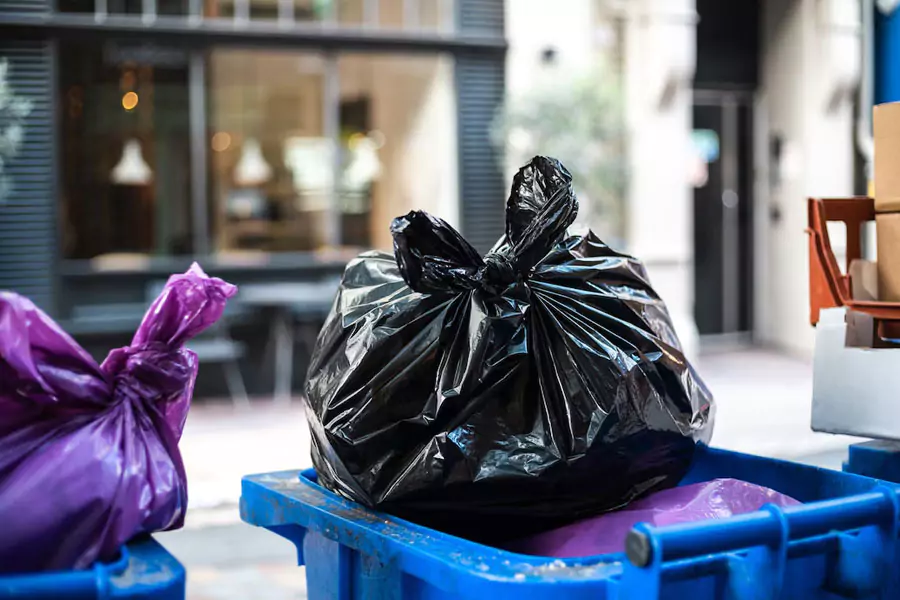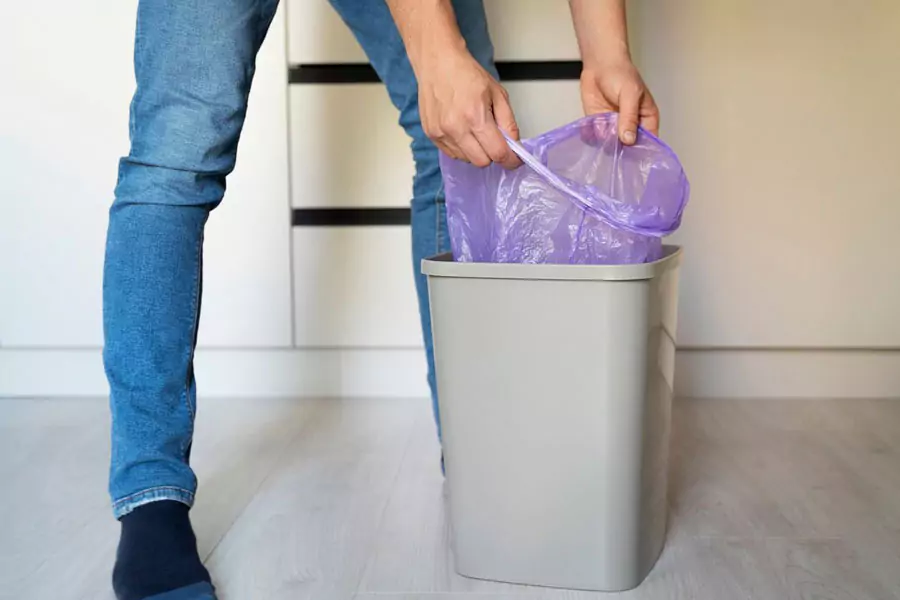
Where to Keep Full Garbage Bags at Home and in a Business Setting
Most of us don’t think twice about trash bags once we’ve tied them up, but where you leave them afterwards actually matters a lot more than you’d expect. A poorly stored bag can quickly turn into a source of bad smells, attract pests, or even create safety risks in busy spaces. For homes, this is about keeping things fresh and hygienic; for businesses, it’s also about meeting rules and avoiding hazards.
At ANS Plastics Corp., we look at garbage bags as part of a bigger waste management system rather than just something you toss your scraps into. With a few simple habits, you can keep both your house and workplace cleaner, safer, and more efficient.
Why Location and Placement of Garbage Bags Matter
Placing a full garbage bag in the wrong place can snowball into problems, such as odors floating through a kitchen, insects and rodents sniffing around, or even someone tripping over a sack left in the wrong corner.
In commercial spaces, mistakes like these don’t just annoy people; they can also mean regulatory trouble. Storing them properly is one of those small steps that protect your space and reputation.
At Home: Smarter Storage Habits
If you’re managing a household, the simplest change you can make is to be thoughtful about where the bags sit before collection. For example, keeping a full kitchen garbage bag in a closed bin in the mudroom or laundry area keeps it out of sight and out of smell range until you take it outside. Just avoid sunny spots because warmth speeds up decomposition.
Kitchen trash, in particular, shouldn’t wait too long. Even if the bag’s only half full, taking it out once a day prevents odors and the growth of bacteria. Once it’s outdoors, use a covered bin that keeps water, flies, and animals out. If raccoons or strays are an issue where you live, locking lids are worth the investment.
One thing people often overlook is that they leave bags directly on the ground. Moisture and unwanted insects can easily get to them, which means bigger messes later. If possible, use a platform, or at least keep them inside a proper container. And finally, avoid stuffing garbage bags to the absolute brim. Filling the garbage bag only three-quarters full makes it easier to tie and lift. Consequently, it helps prevent the plastic from tearing.
In Businesses: Keeping Things Professional
Running a business, especially one that generates a lot of waste like a restaurant, requires tighter control. Staff should know exactly where garbage goes. Note that clearly marked bins save you the trouble of finding random bags tucked into back hallways.
Another good habit is adjusting how often trash is removed. In a busy kitchen, several rounds a day are usually needed, while offices with mostly paper waste can get by with once a day. Wherever the bags wait before pickup, that area should be clean, ventilated, and ideally off the ground on racks or platforms.
Separating different types of waste (food scraps, recyclables, chemicals) isn’t just a neatness thing. It prevents contamination and makes disposal far easier. Since business waste is usually heavy and bulky, durable, commercial-grade bags are non-negotiable; flimsy bags will just end up bursting when you can least afford it.
Creative and Effective Ways to Use Garbage Bags
Beyond waste, garbage bags have surprisingly seasonal and protective roles.
1. Protecting Plants from Frost
Early frost, in the fall or spring, may injure plants. To help preserve the heat, place clear or white garbage bags over the plants overnight. Be sure to take the bags off in the morning so the plants may bathe in the sunlight.
2. Temporary Weed Barriers
Lay garbage bags flat in garden beds to serve as weed blockers. Make sure the bags block sunlight and cut slits for your plants. Then cover the bags with mulch to keep them looking neat.
3. Outdoor Furniture Protection
As garbage bags are rain-proof, they can protect outdoor cushions, grills, or tools from unexpected showers.
4. Greenhouse Insulation
Using clear bags to line the greenhouse walls helps to maintain warmth and humidity in the cooler seasons. Make sure the vents are open to prevent extra humidity.
Frequently Asked Questions About Garbage Bag Storage
1. Are Garbage Bags Waterproof?
Yes, most garbage bags are waterproof. Those made from high-quality polyethylene are most trusted against water. These bags are great at keeping items dry.
2. Will Garbage Bags Melt in the Sun?
Not right away, but prolonged exposure to sunlight weakens the plastic. If you need to store bags outdoors, enhance their durability by keeping them in covered or shaded areas.

Extra Little Habits That Help
- Tie bags tightly before carrying them out.
- Wear gloves when handling anything that’s had contact with food waste.
- Rinse out your bins regularly so smells don’t build up.
- If a garbage bag tears or looks weak, replace it on the spot because it’s not worth risking a spill.
How ANS Plastics Corp. Helps You Store Waste Better
At ANS Plastics Corp., we make bags durable enough to stand up to both home and commercial needs. Our products are made to resist leaks, handle heavier loads without tearing, and come in sizes to suit both small households and busy commercial operations. For anyone making environmentally conscious choices, we also offer recyclable and biodegradable options.
Make Waste Storage Simple and Smarter with ANS Plastics
It may not seem important, but how you handle trash after you tie up the bag can make life a lot easier. At home, it keeps smells, flies, and messes under control. In a business, it’s about safety, cleanliness, and compliance. Waste management becomes less of a headache and more of a reliable, routine process with the right storage habits and the right garbage bags by ANS Plastics Corp.
